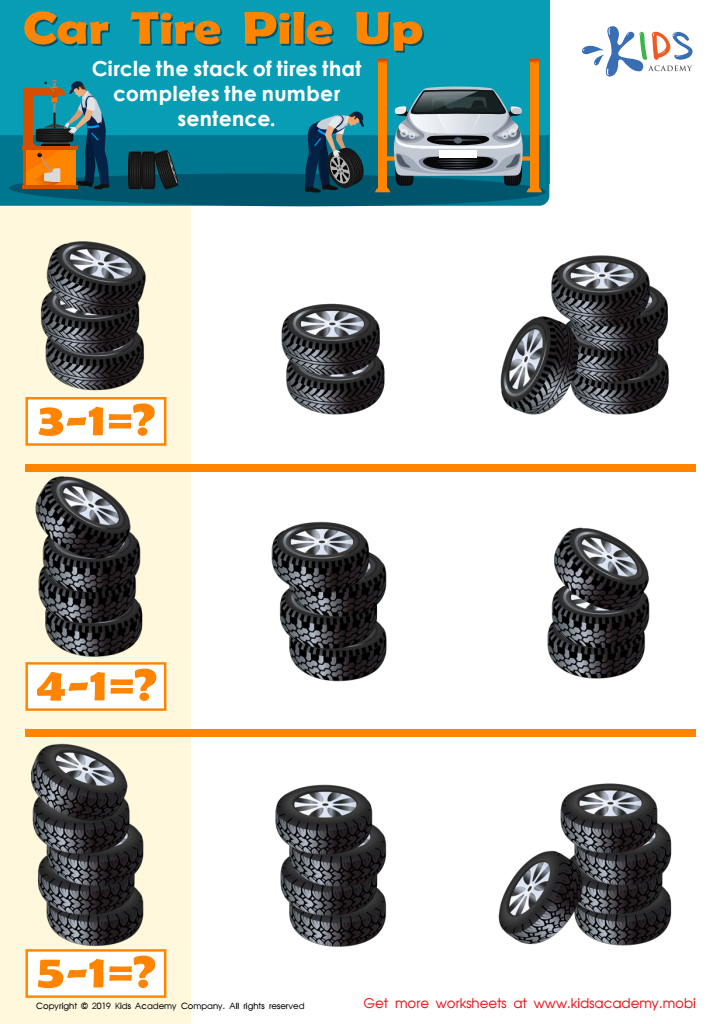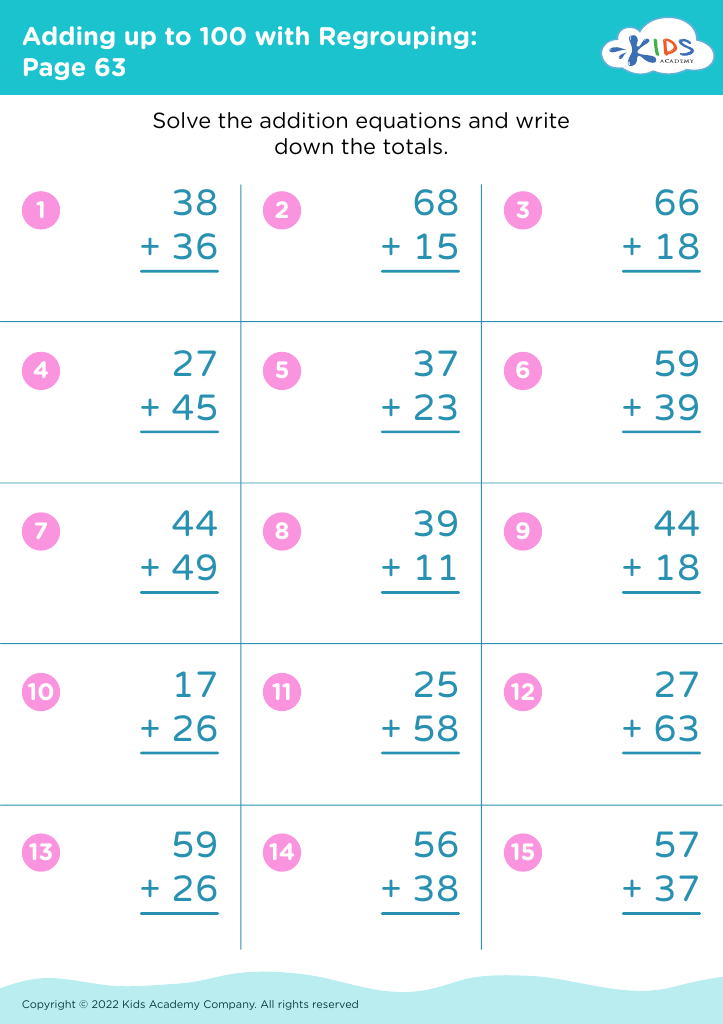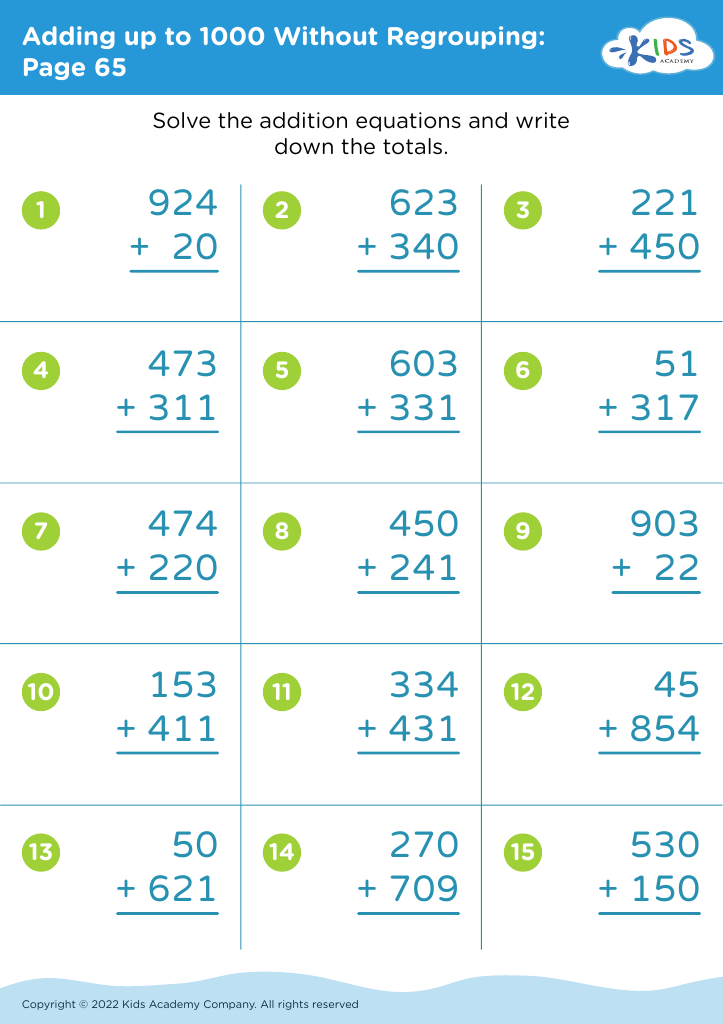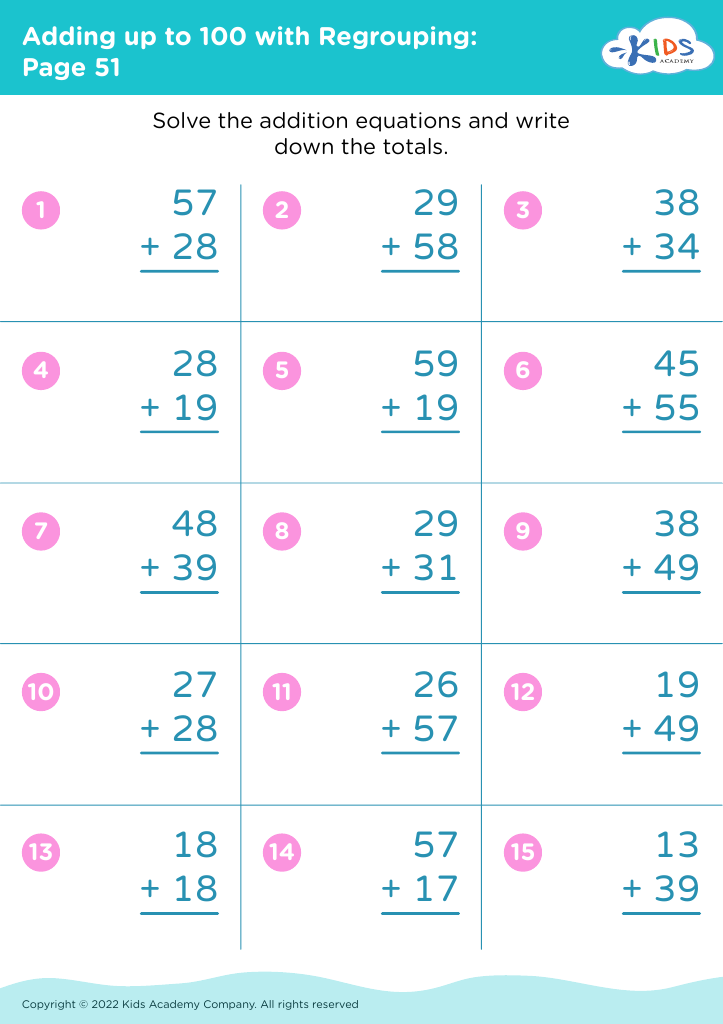Practice problem-solving Math Worksheets for Ages 6-9
5 filtered results
-
From - To
Empower young minds with our engaging Practice Problem-Solving Math Worksheets designed for ages 6-9. These expertly crafted worksheets focus on enhancing critical thinking and math skills through a variety of fun and challenging problems. Our resources cover important topics like addition, subtraction, multiplication, and division, while also integrating concepts of geometry and measurement. Suitable for classroom or home use, these worksheets aid in building a solid foundation in mathematics. Tailored to captivate and educate, our problem-solving exercises are ideal for helping children develop confidence and proficiency in math. Browse now to unlock a wealth of learning potential!


Car Tire Pile Up Worksheet
Practice problem-solving in math for children ages 6-9 is incredibly important for several reasons. Firstly, this formative period builds foundational skills crucial for later academic success. Math problem-solving encourages logical thinking, helping children understand how to break down complex issues into manageable parts, an essential skill for all areas of learning.
Additionally, engaging in problem-solving activities boosts self-confidence and perseverance. When kids tackle and solve math problems, they experience a sense of achievement that fosters a growth mindset. They learn that effort leads to success, which can positively affect their attitude towards learning more broadly.
Moreover, early exposure to math problem-solving can identify and address learning gaps or math anxiety early on. This is essential because negative experiences or feelings towards math can hinder future learning; catching and correcting them early leads to better long-term outcomes.
Parents and teachers play a crucial role in encouraging practice by creating supportive environments where making mistakes is seen as a natural part of learning. Utilizing games, practical exercises, and everyday examples can make math engaging and relevant, showing children the real-world applications of their efforts.
In summary, problem-solving in math for young children enriches their cognitive development, nurtures essential life skills, and lays a solid groundwork for future academic and personal success.


 Assign to My Students
Assign to My Students






















